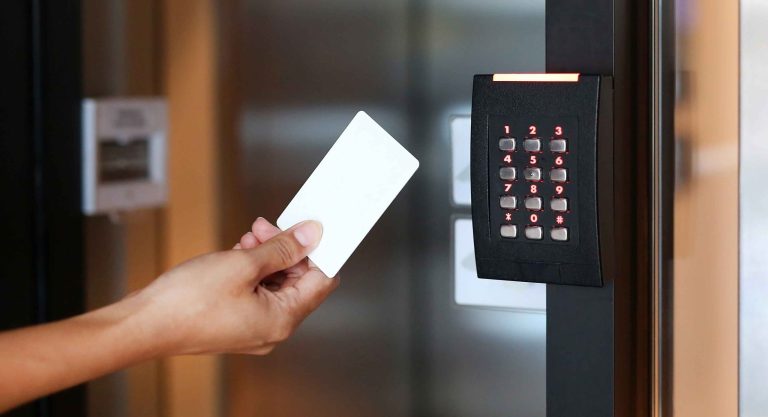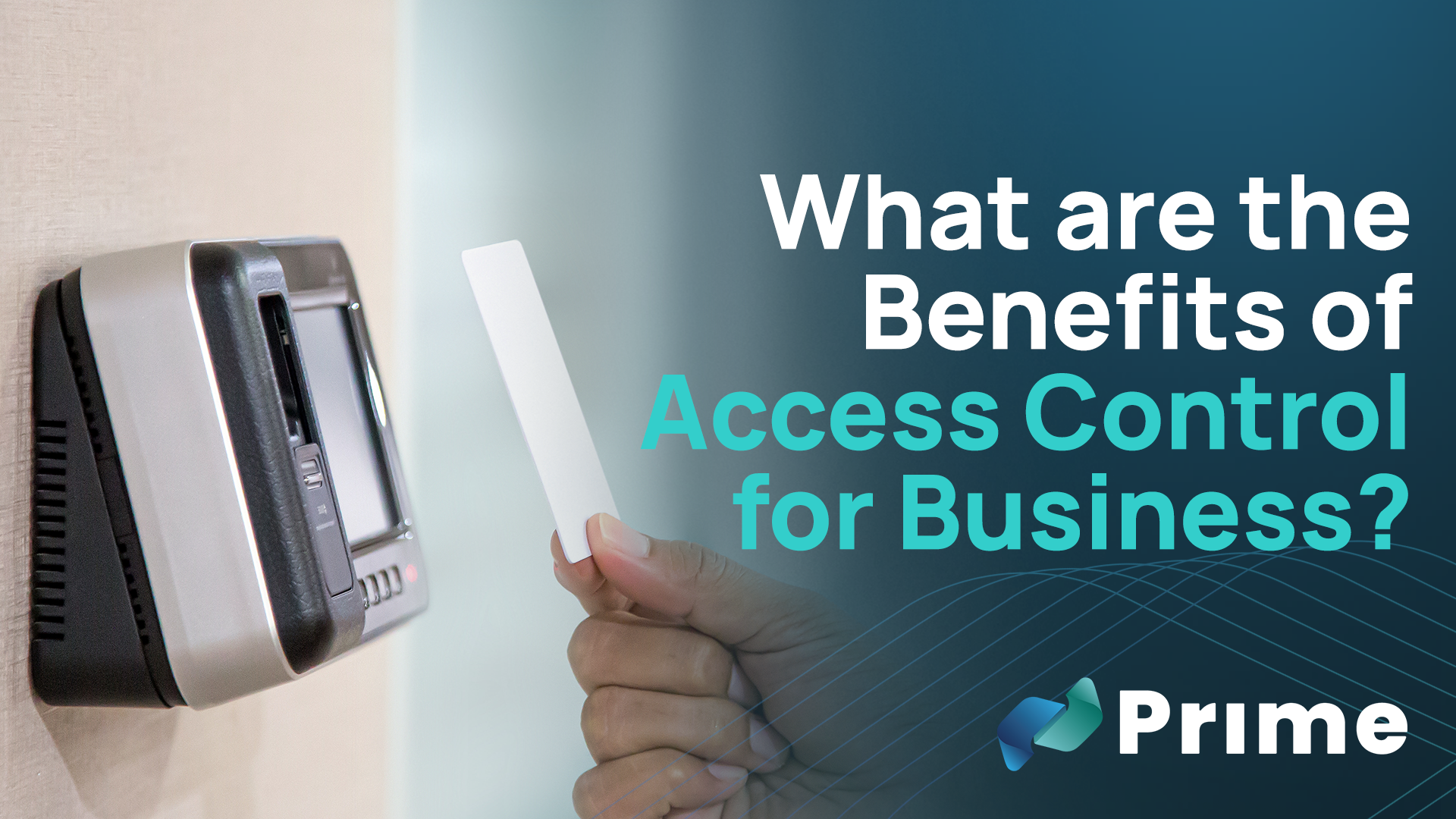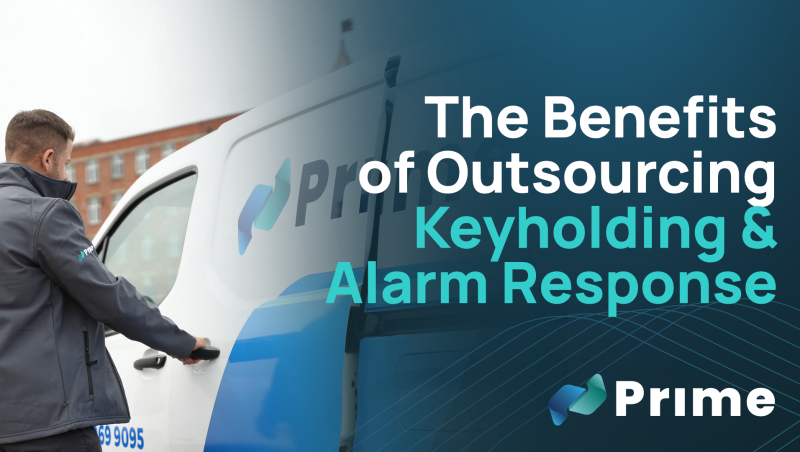Access control refers to the process of managing who can enter specific areas of a building or a site and who can access certain resources or information. These come in a variety of systems that provide businesses with an efficient and automated way to manage access, ultimately making it more difficult for unauthorised people to gain access to sensitive information or assets.
Systems can include key cards, biometric scanners, or PIN codes to control entry to various parts of a facility. Whether its restricting access to a server room, a warehouse, or even certain office floors, access control systems provide businesses with a robust layer of security.

Types of Access Control Systems
Access control systems include:
- Keyless & fob door entry – These systems use key fobs or cards that employees can swipe or tap to gain entry.
- Video intercom – Allows visual confirmation of visitors before granting access.
- Audio intercom – Enables voice communication with visitors to verify identity.
- ANPR cameras – Automatic Number Plate Recognition cameras that allow entry to vehicles based on their license plates.
- Gate automation – Automated gates that control vehicle access to a site.
What are the benefits of access control systems?
Enhanced Security & Protection
Access control systems offer robust protection to businesses that are concerned about unauthorised access. By implementing an access control system, businesses can safeguard sensitive areas, important information and valuable assets from potential threats, significantly reducing the risk of theft, vandalism and data breaches.
Moreover, these systems are equally effective at mitigating internal threats. As not all security risks come from outside; restricting access to specific areas or information to those who absolutely need it reduces the risk of security concerns coming from within.
Improved Monitoring and Accountability
Access control systems streamline the management of who can enter different areas of a premises. Unlike traditional keys, which can be lost, copied, or stolen, electronic access control systems offer a more efficient and secure way to manage access permissions. This automation is particularly beneficial in dynamic environments with frequent changes in staffing or roles. For example, when an employee is promoted, transferred, or leaves the company, their access rights can be updated instantly without the need to reissue keys or change locks.
Additionally, the ability to monitor access means the mere presence of these logs can enhance accountability. Knowing that every access attempt is tracked can deter individuals from attempting to make unauthorised access, ultimately creating a culture of responsibility and adherence to company policies. The transparency provided by these logs makes it easier to identify and address any potential security concerns before they escalate.
Customisation and Flexibility
Access control systems are designed to be highly adaptable, offering businesses the ability to tailor access permissions to suit their unique needs. These systems allow for varying levels of access based on different criteria, such as roles, departments, or specific responsibilities. This customisation ensures that security measures are precisely aligned with the operational requirements of the business.
Moreover, access control systems provide the flexibility to restrict access based on time or other variables, offering businesses the ability to implement policies that reflect their specific security needs. As the business grows and evolves, these systems can be easily expanded or modified to accommodate new challenges, ensuring that the security infrastructure remains robust and effective.
Cost Effective Security Solutions
Investing in an access control system is not only a measure of security but also a cost-effective solution in the long term. By automating access management, businesses can reduce their reliance on physical security measures, such as having security personnel stationed at every entrance or restricted area. This automation can lead to significant cost savings, all while maintaining a high level of security.
Protecting Employees and Enhancing Safety
Beyond securing assets and information, access control systems play a vital role in safeguarding employees. These systems prevent unauthorised individuals from gaining access to the premises, ultimately reducing the risk of workplace violence and ensuring that access is granted only to those with a legitimate reason. Furthermore, access control contributes to overall safety by restricting entry to specific areas, ensuring that only authorised personnel are admitted. This not only protects employees from potential harm but also helps to minimise the company’s liability in the event of an incident.
Conclusion
Implementing an access control system is not just about securing physical spaces; it’s about creating a safer, more efficient, and compliant work environment. By managing who can enter different areas and access specific resources, businesses can protect their valuable assets, sensitive information, and, most importantly, their employees. As the needs of your business evolve, access control systems offer the flexibility and scalability to adapt, ensuring that your security measures remain robust and effective. Investing in an access control system is an investment in the long-term success and safety of your organisation, providing peace of mind that your business is well-protected against both internal and external threats.
If you’re looking to secure your business with access controls today, be sure to get in touch today.




